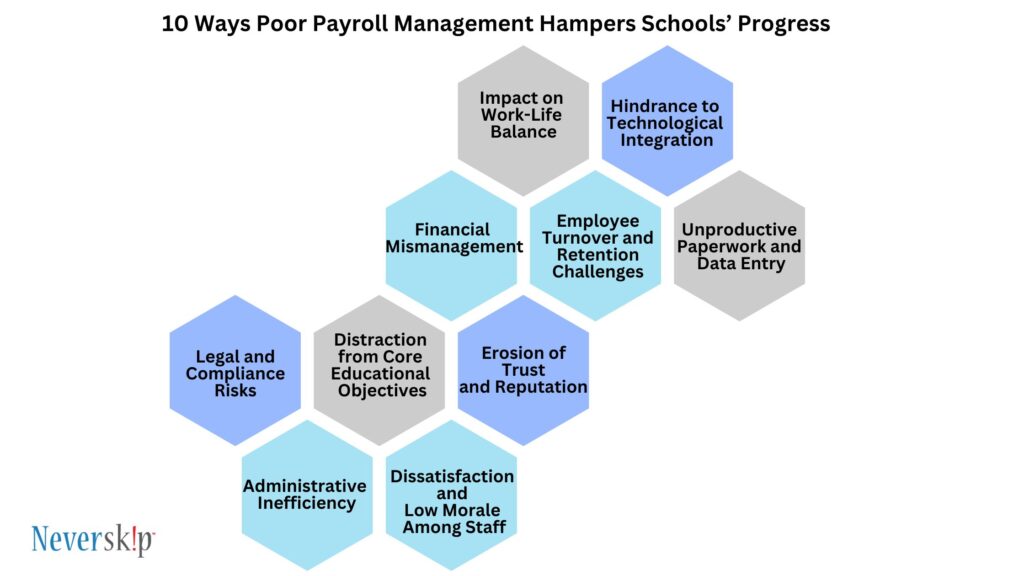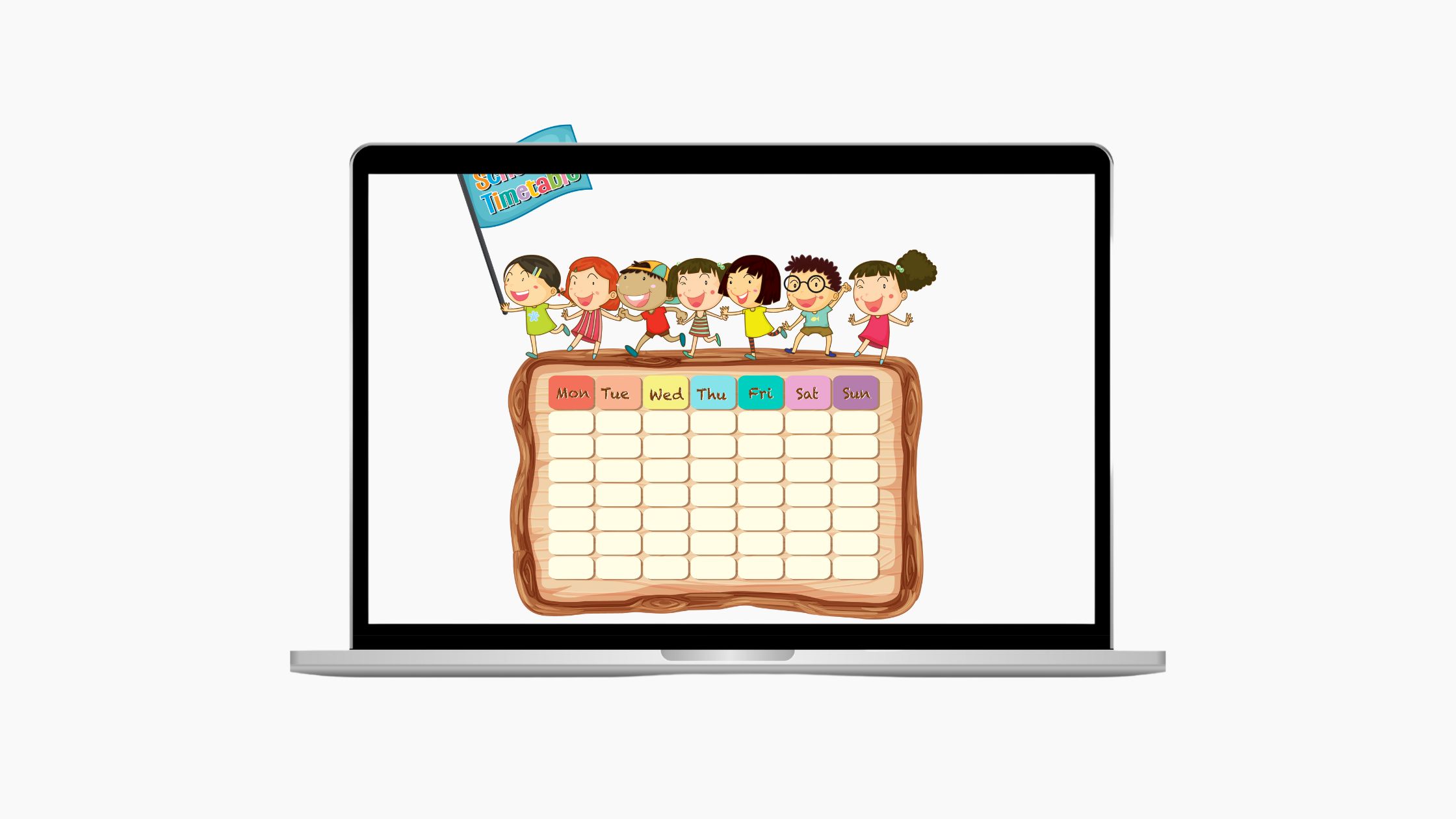With the growing competition in the education sector and educational institutions striving for progress, one often overlooked factor can have far-reaching consequences – payroll management.
Imagine a scenario where teachers’ salaries are delayed, tax calculations become a maze, and staff morale plummets. Unfortunately, this tale isn’t uncommon. Schools, despite their dedication to nurturing young minds, frequently find themselves grappling with the daunting repercussions of poor payroll management.
As per a recent report, more than 60% of the institutions outsource at least some or all of their payroll operations and schools are not an exception to this.
The mismanagement of payroll, though often seen as a routine task, can wield a heavy blow to a school’s journey towards growth and excellence.
Let’s uncover the often concealed challenges that schools face in this realm and understand why rectifying this issue is not just important but imperative.
Why Is Payroll Management Crucial for Your School?
In the intricate tapestry of educational institutions, where minds are molded and futures are shaped, lies a foundational element that often operates in the shadows – payroll management.
Beyond the realm of numbers and calculations, effective payroll management stands as the unsung hero that sustains the harmony and progress of a school. It’s not just about ensuring teachers and staff receive their due compensation and staff management; rather, it’s a fundamental pillar that impacts every facet of your school’s functionality and reputation.
At its heart, payroll management is a commitment to the people who make your school’s mission possible – the dedicated educators, support staff, and administrative personnel. Timely and accurate payroll signifies respect for their efforts, instilling a sense of loyalty and motivation that resonates throughout the institution. It directly influences morale, allowing your team to focus on their responsibilities without the stress of financial uncertainties.
Beyond the immediate impact on individuals, efficient payroll management reflects the school’s professionalism and financial health. Inaccuracies, delays, or mishandlings can cast doubts on the institution’s reliability and commitment. This could lead to disgruntled employees, tarnished reputation, and even legal repercussions.
On the contrary, a well-organized payroll management system demonstrates accountability and transparency, fostering trust among staff, students, and parents alike.
Furthermore, payroll management is intricately linked to compliance. Educational institutions must adhere to specific regulations and tax requirements. Failing to do so could lead to penalties that drain financial resources and divert attention from educational priorities. Accurate tax calculations, timely filings, and compliance with labor laws are vital components of effective payroll management that safeguard your school’s financial standing.
In a holistic sense, payroll management is an investment in your school’s sustainability and growth. Streamlined processes free up administrative time, allowing personnel to focus on strategic planning and academic endeavors. It’s a commitment to organizational efficiency, ensuring that resources are allocated optimally for both immediate needs and future aspirations.
See More: 10 Best Practices To Enhance The Parent-Teacher Communication For Your School
Poor Payroll Management in Schools: How Can It Hamper the Progress?

Now, let’s delve into the top critical ways in which deficient payroll management can hinder a school’s advancement and the importance of an efficient Payroll Management System to counter these challenges.
1. Dissatisfaction and Low Morale Among Staff
In any school, dedicated teachers and staff are the backbone of success. Ensuring their well-being and satisfaction is not just ethical but essential for maintaining a conducive learning environment.
Poor payroll processing, characterized by delays, errors, and inconsistencies, can lead to dissatisfaction among employees. Late salaries can breed frustration, affecting morale and ultimately influencing the quality of education provided. A disheartened workforce is less likely to put in their best efforts, resulting in diminished enthusiasm and engagement within the school.
2. Administrative Inefficiency
Manual payroll processing, especially in larger schools, can be time-consuming and prone to errors. Calculating salaries, deductions, taxes, and benefits manually leaves room for mistakes that can cause discrepancies in employee compensation.
Such inefficiencies tie up valuable administrative resources that could be better allocated to strategic planning, student engagement, and curriculum development. An automated Payroll Management System streamlines these processes, minimizing errors and freeing up staff for more impactful responsibilities.
3. Legal and Compliance Risks
Inadequate payroll management opens the door to legal and compliance risks. Schools are subject to various labor laws, tax regulations, and reporting requirements. Failing to adhere to these standards can result in penalties, tarnished reputation, and financial strain.
An efficient Payroll Management System incorporates compliance features, ensuring that tax calculations are accurate, employee records are up to date, and required reports are generated and submitted on time.
4. Distraction from Core Educational Objectives
Educational institutions exist primarily to educate and nurture students. However, poor payroll management can divert precious time and attention away from core educational objectives.
Administrative staff engrossed in addressing payroll-related issues have less time and energy to focus on improving teaching methods, curriculum development, and student engagement strategies. Implementing an automated Payroll Management System reduces these distractions, allowing the school to channel its efforts toward academic excellence.
5. Financial Mismanagement
Effective financial management is essential for any institution’s sustainability. Poor payroll management can lead to financial mismanagement, where inaccurate calculations and delayed disbursements disrupt the school’s budgeting and financial planning.
The repercussions might extend to inability to pay vendors, meet operational expenses, or invest in infrastructure development. An integrated Payroll Management System provides accurate insights into financial outflows, facilitating better budget allocation and financial decision-making.
6. Erosion of Trust and Reputation
A school’s reputation is built on trust, and trust is deeply tied to how well the institution manages its internal affairs, including staff compensation. Consistent payroll errors, delayed payments, or miscommunication regarding benefits erode the trust employees have in the school’s administration.
Furthermore, disgruntled staff members might share their negative experiences within the community, impacting the school’s reputation and enrollment rates. By contrast, a reliable Payroll Management System fosters transparent and consistent communication, reinforcing trust and enhancing the school’s image.
7. Employee Turnover and Retention Challenges
High turnover rates among staff can disrupt the stability and continuity of a school. Poor payroll management contributes to employee dissatisfaction, which in turn can lead to increased turnover.
Teachers and staff members who feel undervalued or face issues with their compensation are more likely to seek opportunities elsewhere. An efficient Payroll Management System contributes to staff retention by ensuring timely and accurate payments, fostering a sense of security in payroll processes and commitment.
8. Unproductive Paperwork and Data Entry
Traditional payroll processing involves copious amounts of paperwork and manual data entry. This not only consumes valuable time but also increases the likelihood of errors. Staff members burdened with these administrative tasks are diverted from more strategic and impactful responsibilities.
Adopting a digital Payroll Management System eliminates the need for extensive paperwork, reduces the risk of data entry errors, streamlines the relevant administrative tasks, and enhances overall efficiency.
9. Impact on Work-Life Balance
Inaccurate or delayed payroll processing can have a domino effect on employees’ work-life balance. Financial uncertainty and stress stemming from payroll issues can spill over into their personal lives, affecting their overall well-being.
As education thrives in a nurturing and supportive environment, addressing payroll challenges is essential to ensure that staff members can focus on their roles without the added burden of financial concerns.
10. Hindrance to Technological Integration
Modern educational institutions are increasingly leveraging technology to enhance learning experiences and streamline operations. Poor payroll management, reliant on manual processes, can create a barrier to technological integration.
This siloed approach hampers the school’s ability to implement comprehensive solutions that improve overall efficiency. Integrating a robust Payroll Management System not only addresses immediate payroll challenges but also paves the way for a more technologically advanced and interconnected institution.
See More: How To Choose The Best Learning Management System For Your School?
Overcome School Payroll Management Challenges With Neverskip’s Payroll Management System
In the extensive web of school administration, where every piece must fit seamlessly to ensure a conducive learning environment, one challenge often casts a shadow – payroll management.
However, with the advent of the top-notch payroll management systems like Neverskip’s Payroll Management System, schools can now transcend the complexities and experience a new era of efficiency and accuracy. Swift and precise payroll management is not just a convenience; it’s a crucial stride towards overall school progress.
Adopting Neverskip’s Payroll Management System is more than a strategic choice; it’s a necessity for schools aiming to stay ahead in a dynamic educational landscape. One of the top features is seamless payroll management, which simplifies the process from salary calculation to disbursal, leaving no room for errors or delays.
Coupled with this is easy staff attendance management, ensuring that accurate attendance data seamlessly integrates with the payroll system, minimizing manual intervention and enhancing reliability.
The heart of Neverskip’s system lies in its automated payroll processing. No longer do schools need to wade through spreadsheets and calculations; the system handles it all, ensuring accurate and timely payment to staff. Moreover, the system’s overtime management feature eliminates the complexity of tracking and calculating overtime hours. This not only saves time but also reduces the chances of errors, ensuring that staff members receive their rightful compensation.
Time is a precious resource in any educational institution, and Neverskip’s Payroll Management System recognizes this. By automating calculations, data entry, and attendance integration, the system frees up valuable administrative time that can be redirected towards strategic planning and enhancing the educational experience.
Book a free demo today to get started!








